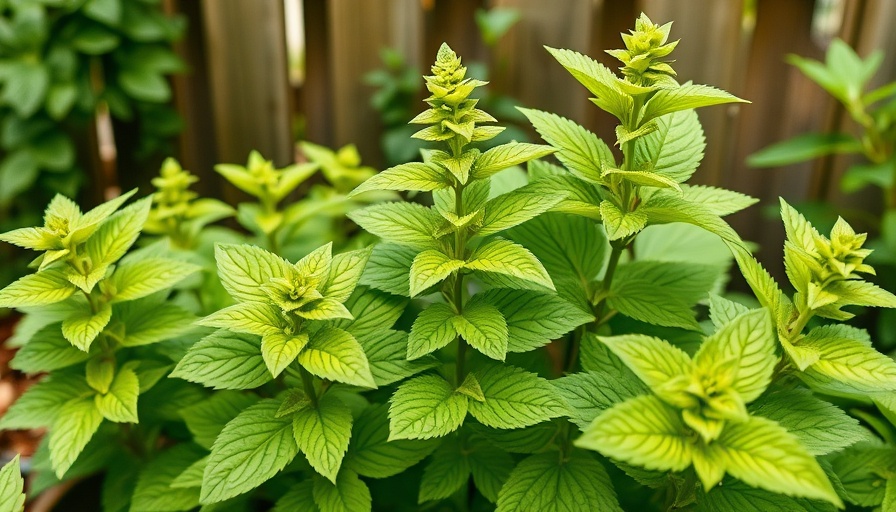
The Magical Benefits of Lemon Balm
Lemon balm (Melissa officinalis) isn’t just any ordinary herbal plant; it’s a powerhouse of possibilities. Beyond its delightful lemony fragrance, it has become a beloved staple in gardens around the world for its myriad benefits. Not only does it bring charm and scents to your backyard, but its ability to attract pollinators makes it a natural ally for garden biodiversity. This green wonder offers a unique ability to uplift moods, calm nerves, and enhance culinary delights, making it an herb worth embracing.
Embracing Health Benefits
Often dubbed the “calming herb,” lemon balm has been used historically as a remedy for anxiety and insomnia. Its aromatic leaves can be made into teas, infused oils, and even added to skincare recipes to promote relaxation and wellbeing. This plant goes beyond just beauty, playing a role in health by supporting digestive wellness and boosting immunity. Tea made from lemon balm leaves can soothe a troubled stomach, while its fragrant infusion can help alleviate stress.
How to Grow Lemon Balm: An Easy Guide for Beginners
One of the best things about lemon balm is how simple it is to grow. A member of the mint family, it thrives in a variety of conditions. It prefers well-drained soil enriched with organic matter, and while it enjoys sunlight, it can tolerate partial shade, making it an ideal plant for different garden environments.
For those new to gardening, starting lemon balm from seeds indoors or purchasing young plants can make for a fruitful project. Place them in a pot with good drainage, and soon you’ll see this enthusiastic grower take off!
Harvesting Like a Pro
When it comes to harvesting, the rule of thumb is to snip the leaves just before the plant flowers for the best flavor. Use clean, sharp scissors to not damage the roots of this vigorous plant. Whether you want to dry the leaves for winter use or utilize them fresh in your favorite electric blender for smoothies and hot teas, harvesting can be a rewarding process. Don’t be shy to trim back excess growth; this will promote bushier plants and enhance your harvest.
Versatile Uses: From Kitchen to Skincare
Lemon balm is incredibly versatile. Beyond being a flavorful addition in teas and smoothies, this herb can enhance savory dishes or be transformed into delicious culinary creations. You can make infused oils, herbal syrups, or skin care balms, unlocking countless uses right from your garden! Imagine creating a refreshing lemonade infused with lemon balm or crafting homemade beauty products that celebrate the herb’s natural properties.
Lemon Balm and Pollinator Friendship
Lemon balm has a unique relationship with nature. Its fragrant flowers are a beacon for bees, butterflies, and other pollinators—a fact that harks back to ancient Greek culture, where this plant was associated with the sacredness of these creatures. By cultivating lemon balm in your garden, you’re not just growing a beneficial herb; you’re fostering a sanctuary for pollinators. This makes it an invaluable addition not just for your own harvest but for the environment as well.
Exploring the Therapeutic Tradition
The historical use of lemon balm dates back centuries, often celebrated in healing traditions. Hippocrates once referred to it as a valuable remedy, and modern herbalists continue to appreciate its calming properties. Incorporating lemon balm into your wellness routine can provide a natural way to promote tranquility and enhance your overall health.
DIY Gardening Projects: Lemon Balm and Beyond
Lemon Balm’s popularity extends into DIY gardening projects: Try creating a vertical herb garden using pots, or integrate it into a raised garden bed for instant design and utility. Explore creative ways to incorporate composting into your gardening strategy, enhancing soil quality while also embracing sustainability.
Concluding Thoughts: Why Lemon Balm?
Incorporating lemon balm into your garden isn’t just about growing an herb; it’s about enhancing your home and health. With its ease of growth, multitude of uses, and ability to support the ecosystem, this herb is a small but mighty addition to any garden enthusiast's collection. Whether you’re sipping a soothing tea after a long day or using it in a fresh face mask, lemon balm continually shows the value of keeping close ties with nature.
So, why not add a little lemon balm magic to your life? Start small with a pot by your kitchen window or a spot in your garden and experience the joys it brings!
 Add Row
Add Row  Add
Add 




Write A Comment